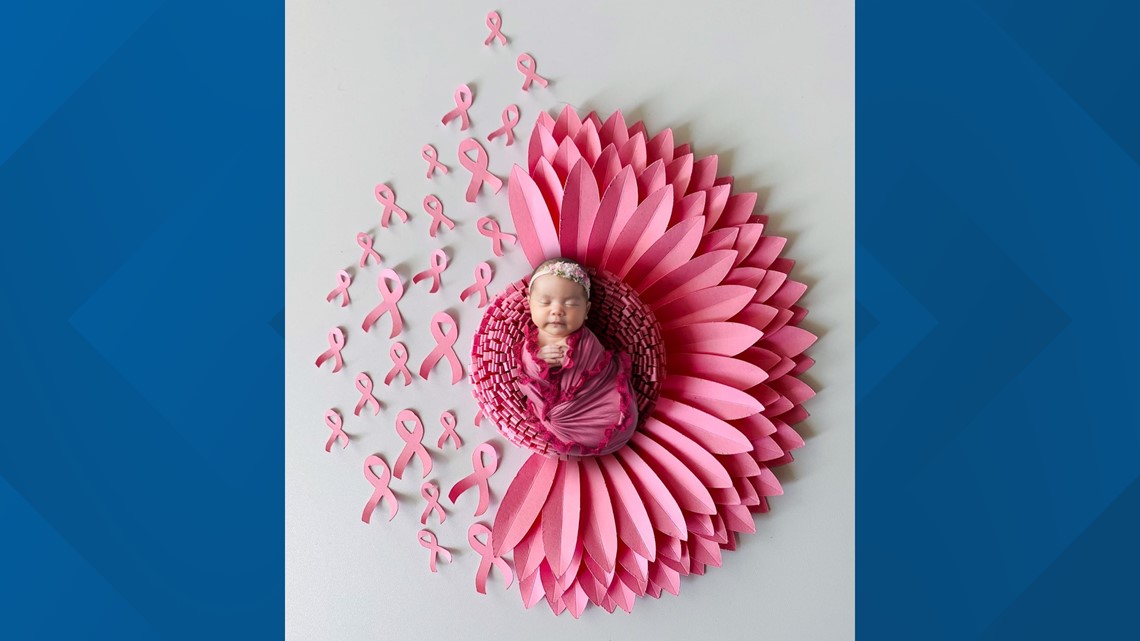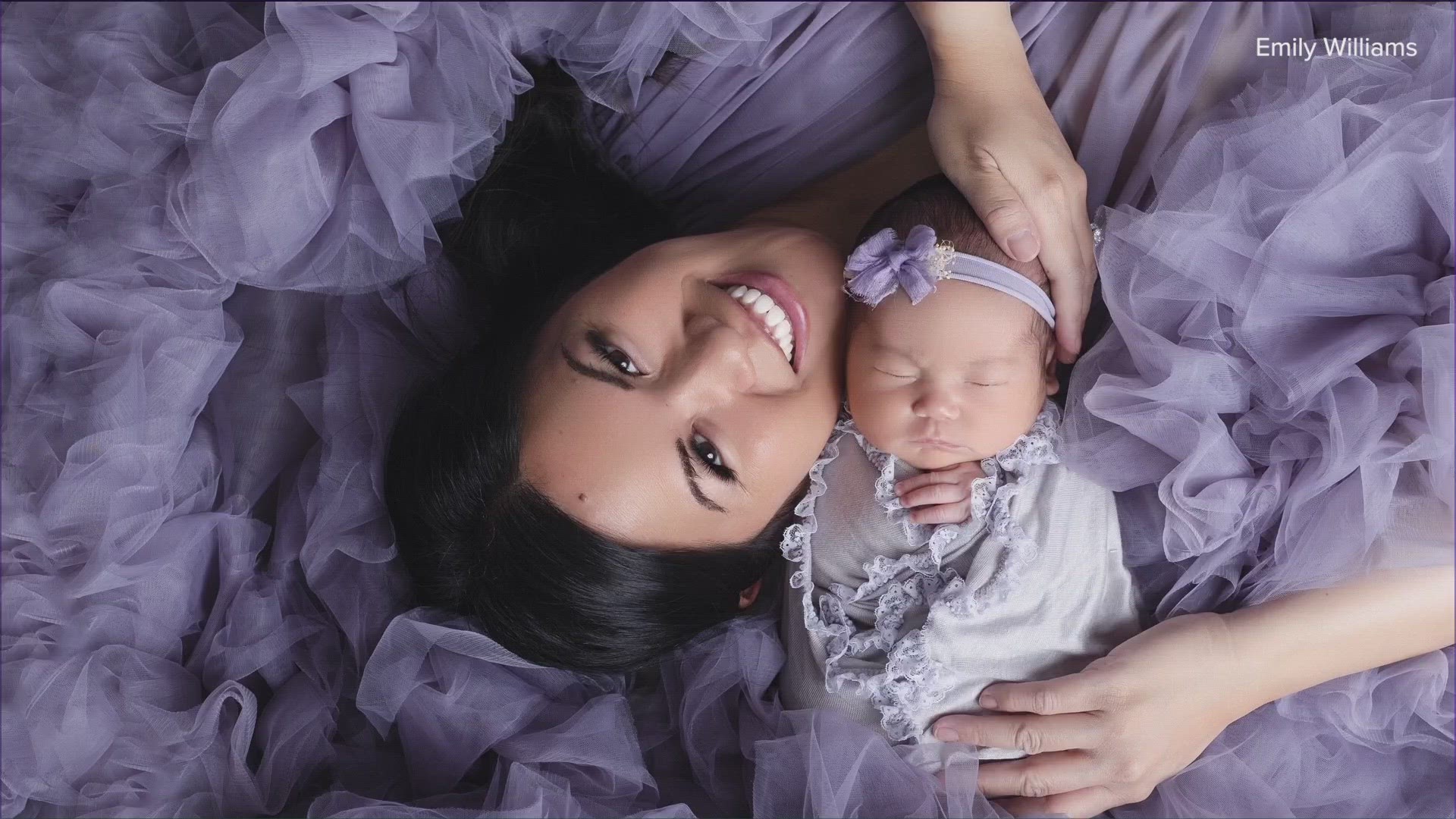AUSTIN, Texas — An Austin mom is especially happy to be celebrating this Mother's Day with her family after a terrifying health scare.
In March 2022, Emily Williams turned 40 and scheduled her first routine mammogram. When her results came back, it was good news. She was all clear.
A couple months later, in May, she found out she was pregnant with her second child. Then in June, the good fortune was flipped, as Williams found a lump in her breast and was diagnosed with Stage IIB breast cancer.
"When I first was diagnosed, I think what the scariest part for me was we went through all this effort to get pregnant. At 11 weeks, I'm like, 'Oh, I'm almost at like the second trimester, right?' I was, I was so close. So to find out I was diagnosed with breast cancer was extremely hard," Williams said.
However, with the help of her cancer care team at Texas Oncology, Williams received a safe and effective treatment for cancer throughout her pregnancy.

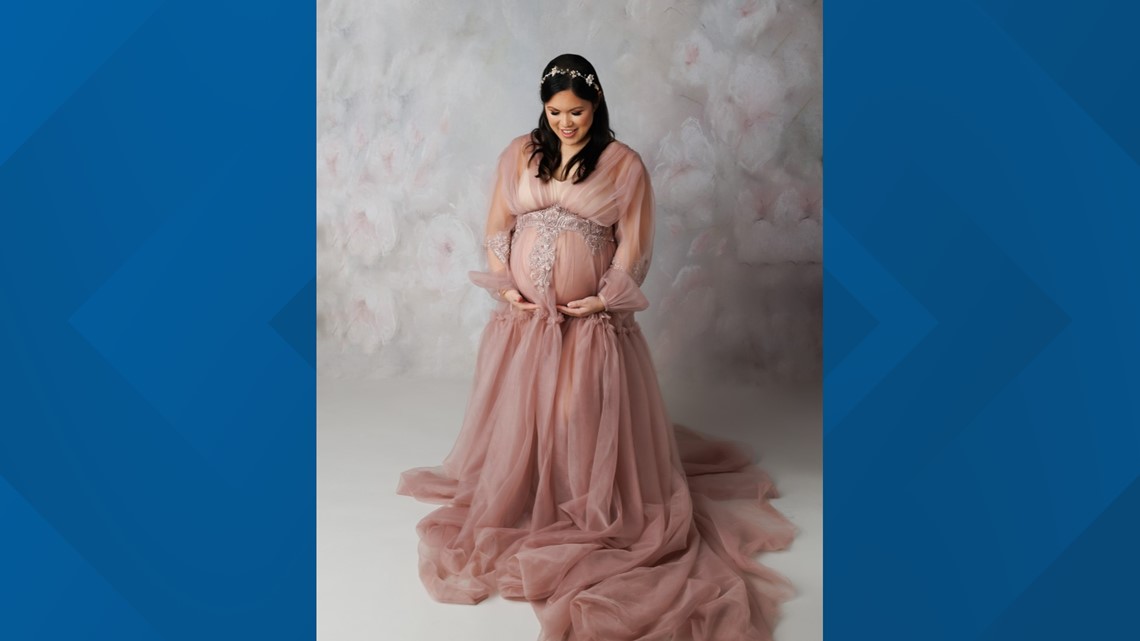
“Emily is an amazing young woman who fearlessly went through breast cancer treatment, motherhood and is a young professional. She really is an inspiration and her fantastic can-do attitude continues to serve her well," said Debra Patt, M.D., Ph.D., MBA, medical oncologist at Texas Oncology for Austin Central. "People often fear that having a breast cancer diagnosis and a pregnancy together is ominous and, truthfully, most of the time, it is not."
"We as cancer specialists can work with families frequently to ensure the best outcome for both the patient and the pregnancy," Pratt continued. "It is terrifying at first for patients, but we, as seasoned professionals, can see patients through this journey."
Williams said after her diagnosis, she thought about the worst case scenario. She wanted to stay alive for her daughters, and she went into her first meeting with her team with that mindset.
"There's been other pregnant women diagnosed with breast cancer. All it does is just change the course of action. You know, the protocol itself is the same as others that are diagnosed with breast cancer. So that's why I had the surgery first during my second trimester. Then two weeks later, I went straight into 21 weeks of chemo," Williams said.
In January 2023, five days after her last chemo treatment, Williams' water broke and she went into labor. A healthy baby girl was born, and she held her daughter for the first time, washing away the trials of what had been an intensely challenging year.

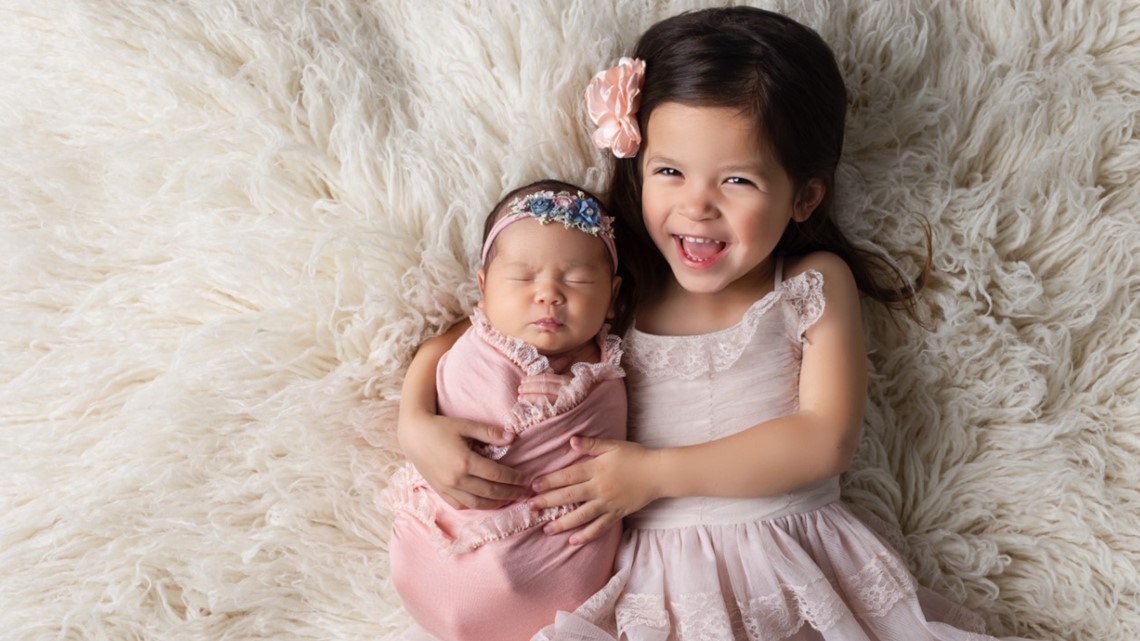
"We do have a healthy four month old. We did all of the extra tests when she was born, extra blood tests, and everything came out so amazingly. She's perfectly normal and just happy and healthy," Williams told KVUE.
In April, Williams reached her goal of running the London Marathon, reminding everyone that mothers and cancer survivors are strong and resilient. The mother of two said that despite her body having been through so much, she’s stronger than ever.
"I decided to run the London Marathon. It was going to be my fourth marathon. So that was a motivation. I also had the opportunity to fundraise with the American Institute for Cancer Research as part of going to the London Marathon. I raised $6,500, and the American Institute for Cancer Research are big advocates for physical activity and nutrition as part of cancer survivorship," Williams said.
For other women who may be diagnosed with breast cancer or who are going through a similar situation, Williams said it's all about the mindset and overcoming that hurdle.

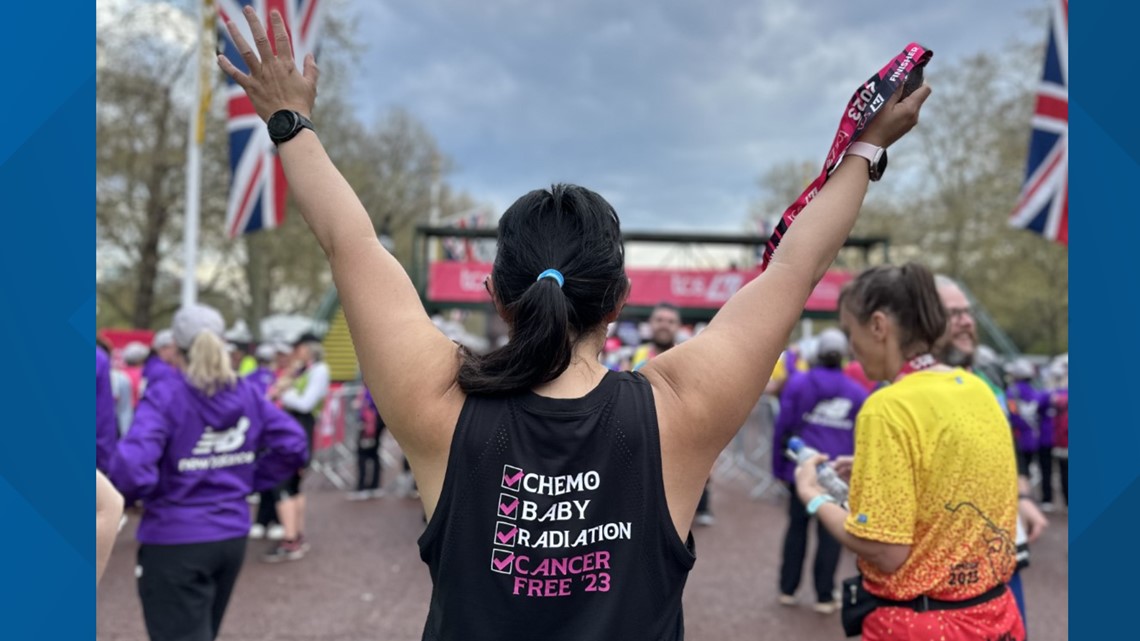
"Give yourself some grace, and do what you can do. But what I found really helpful for me was having a community around me. I had this whole group of people rallying around me, asking to run with me, to help with my training or just keeping me motivated, checking in on me, so that really helps," Williams said.
According to the Centers for Disease and Prevention (CDC), about one in eight women will get breast cancer during their lifetimes. Although breast cancer mostly occurs among older women, it can affect women under the age of 45 in rarer instances.
"When her baby was born, I saw one moment of a crack in this presence, and it was all concern about her baby. After all she had been through, the only thing she wanted was to just make sure the baby was good. That is what defines a mother," said Rebecca Wiatrek, M.D., FACS, Texas Oncology Surgical Specialists for Austin Central and Round Rock. "The relief she showed when she knew the baby was great was priceless. Cancer is hard enough by itself, but adding in being pregnant can be beyond difficult. What I would tell patients is to keep their hope and gather a great support team!"


The U.S. Preventative Services Task Force recommends women who are 50 to 74 years old and are at average risk for breast cancer get a mammogram every two years. Women who are 40 to 49 years old should consult their doctor or other health care provider about when to start and how often to get a mammogram.

